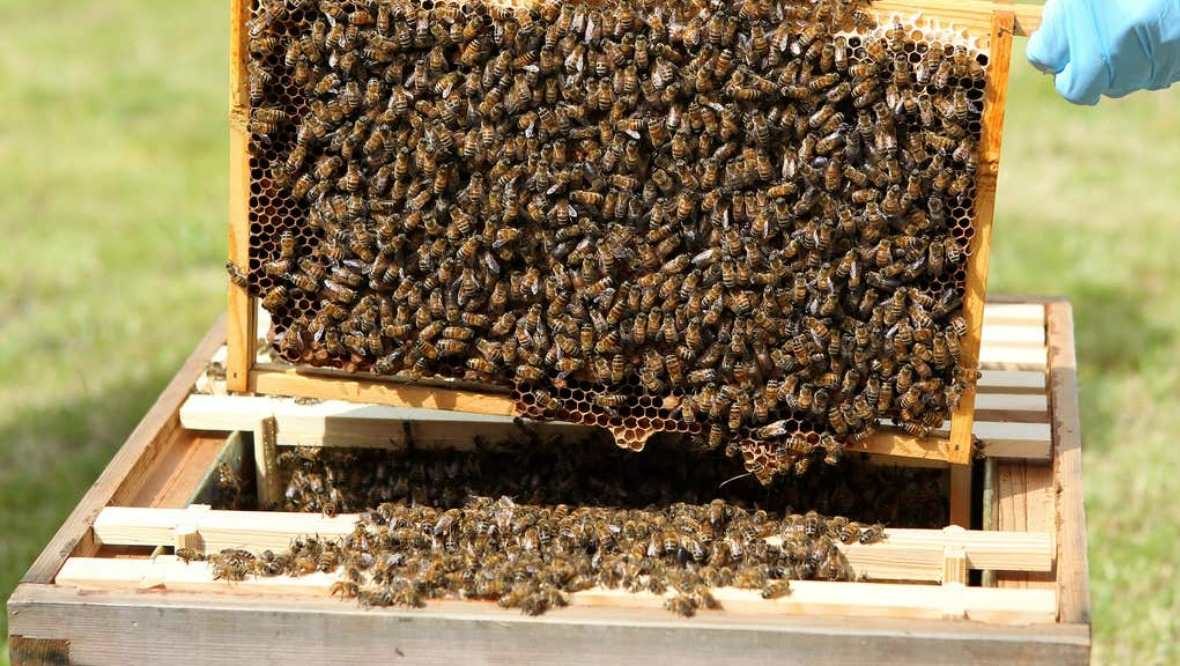An infected bee colony has been destroyed after the first-known outbreak this year of a highly resistant disease in Scotland.
A hive at an apiary in the Stanley area of Perthshire was found to be infected with American Foulbrood (AFB), an untreatable disease that affects colonies of honeybees.
The infection was confirmed by Scottish Government bee health inspectors who must burn and destroy the affected hive, all its bees and any honey it has produced.
Any other beekeepers in a 3km radius will be alerted to the outbreak, instructed to increase their biosecurity and inspectors are due to carry out follow-up inspections in the area.
AFB is one of two notifiable diseases that can affect bee colonies and is caused by a spore-forming bacterium called paenibacillus larvae, with infections caused by food contaminated with spores being fed to larvae by the nurse bees.
Once in the gut of the larva, the spores germinate, bacteria move into the larval tissues before multiplying at pace, usually killing the larvae and leaving millions of infectious spores that are highly resistant to extremes of hot and cold as well as many disinfectants.
Chief veterinary officer for Scotland, Sheila Voas, said: “The finding of AFB is disappointing however it is a timely reminder that beekeepers should remain vigilant for signs of the disease at all times and it emphasises the important work of the Scottish Government bee health team.
“As determined by legislation, appropriate action will be taken.
“There is no treatment permitted in the UK for AFB and therefore the bees, combs or bee products from the hive are required to be destroyed (by burning) whilst the hive, debris from the hive and any appliances or other things liable to spread the disease will be served with a notice requiring either treatment (sterilisation) or destruction.
“The movement of bees and related equipment into, or out of, the affected apiary will be under specific controls supervised by Scottish Government bee inspectors and will include enhanced biosecurity measures and increased vigilance in the area.
“I would reiterate that while this is disappointing, there are no risks to public health from AFB and no implications for the quality and safety of Scottish honey.”
Follow STV News on WhatsApp
Scan the QR code on your mobile device for all the latest news from around the country


 PA Ready
PA Ready
























